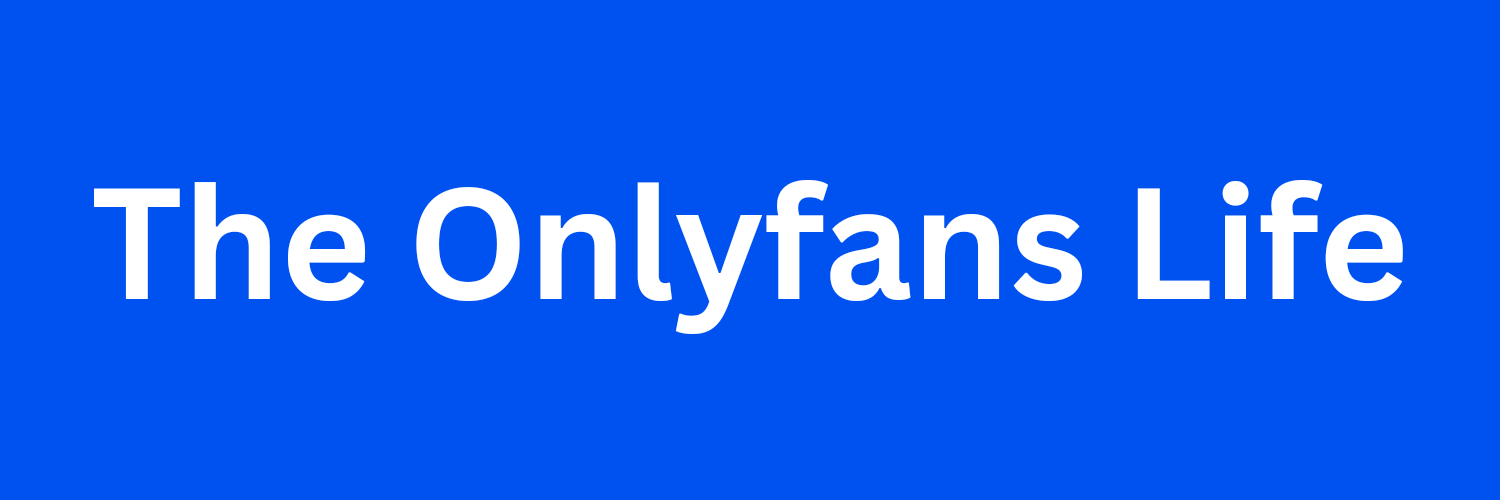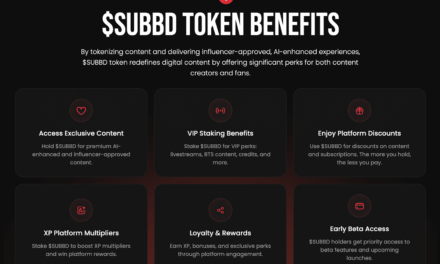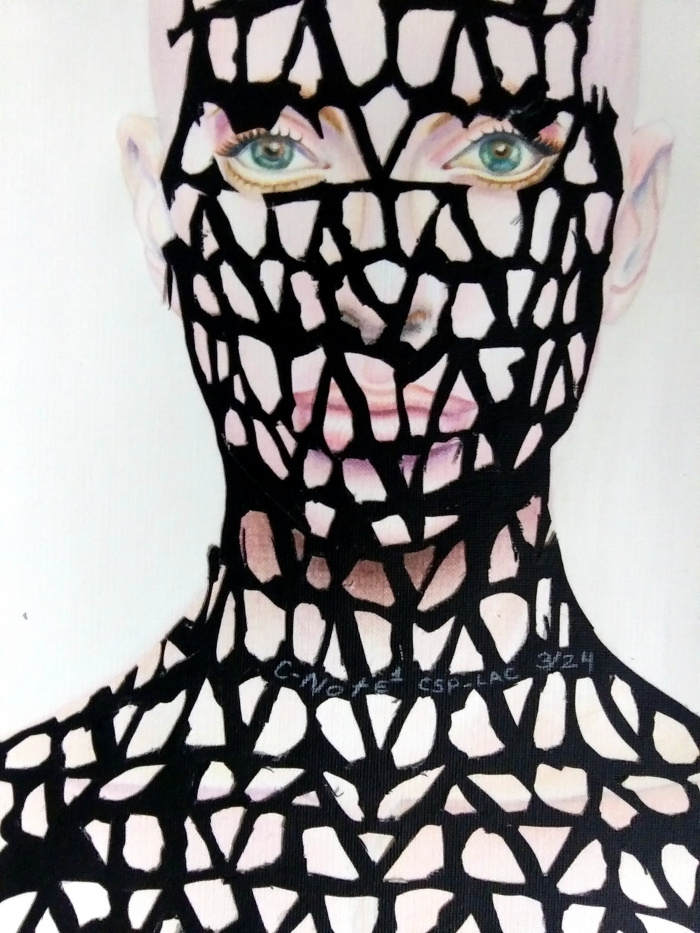During the pandemic, I happily joined the steady stream of sex workers and exhibitionists flocking to OnlyFans. As we were cooped up at home amid the bizarro COVID alternative reality, regular decisionmaking went out the window. I loved doing photo shoots and posting thirst traps on Instagram; OnlyFans seemed like a horny release valve and an easy, fun way to make some extra money. I was posting relatively tame content—Playboy-style topless, lingerie, and bikini photos, nothing overtly pornographic—so I didn’t think I was at risk of having my content stolen. But after I’d spent three years on the platform, my luck run out.
Last October, I checked my email and got a Google Alert for my name containing eight suspicious results with headlines like “Leaked Girl Pics” and “Nude Leaks.” I clicked on one of them and found a near-perfect replica of my OnlyFans page minus a key feature: the paywall.
I’m not the first OnlyFans creator to have their content leaked. In 2020 the Verge reported that over 1.6 terabytes of OnlyFans photos and videos had been shared online—not through a hack, but by customers acquiring content from hundreds of creators, then compiling it into a large file for free. These leaks don’t just result in financial loss; they also rob creators of control over their work, jeopardize their privacy and safety, threaten long-term career prospects, and create an ongoing administrative nightmare.
In a panic and searching for advice, I frantically hopped on an X message thread called Comedy Hoes, which includes other comedians and OnlyFans creators. “Help! Apparently some of my OF photos got leaked,” I wrote. “What do I do?” One of them chimed in right away with a referral: contact Reba Rocket at Takedown Piracy. Someone else seconded, adding, “I’m so sorry you’re dealing with it, they come for us all eventually.”
I got on a Zoom call with Reba that afternoon. She explained that Takedown Piracy is a takedown service: For $150 a month, the company could monitor the internet for my stolen content on my behalf and remove infringing content using Digital Millennium Copyright Act notices. It could get a lot of it taken down. Takedown Piracy has removed over 10 million infringements from Google and nearly 100 million more from individual sites and profiles. But Reba warned me not to expect perfection. There are too many offshore bad actors. Too many persistent lewd collectors/thieves. The company could clean up my search results, but it would be impossible to scrub my stolen content completely. “It’s like Whac-a-Mole,” she said.
My thief had made off with a huge archive of over three years’ worth of content, mostly photos with a handful of videos. It was devastating to learn that the thief was one of my subscribers—they were supposed to be a fan, not a menace. I had a fox in my henhouse. I felt totally exposed. I was eager for some peace of mind, however imperfect. I signed up immediately.
Paying for a DMCA service didn’t feel optional—it felt essential. I’m a writer for mainstream publications; I’ve produced podcasts for Fortune 500 companies and celebrities. I didn’t want everyone to have access to my lewds in the click of a button! I couldn’t afford it. And I didn’t have the time or expertise to monitor the internet myself.
What I loved about OnlyFans was that it indulged my exhibitionism within the confines of my monogamous relationship; it also felt like a form of reparations for prior misogyny I’d experienced. I had agency over what I was sharing. I set my own boundaries. It was empowering. Having my content stolen felt the exact opposite. It was so violating seeing it all laid out for the internet to see. This wasn’t just about losing revenue from stolen content, though that’s a huge part of it; it was about having my work and body shared without my consent. It was about not having control over my own image, even in its most intimate form.
“It never, ever feels less violating. It’s upsetting,” said Siri Dahl, a popular adult film actress and advocate for performers’ rights, when I interviewed her for my podcast. Early in her career, Dahl noticed behind-the-paywall selfies pop up in tube-site ads for “predatory, weird, fake dating sites.” Adding insult to injury, one of the ads using her stolen photo was captioned “Fuck hot old chubby MILFs right now.” At the time, she had just turned 24.
Unfortunately, that wasn’t her last brush with porn piracy. She likened the relentlessness of dealing with it to “an endless game of Whac-a-Mole.” (Does this metaphor sound familiar?) To deal with the ongoing issue, Dahl also engaged a DMCA takedown service—she’s currently working with Ceartas and, before that, BranditScan. These days, she pays Ceartas “several hundred dollars a month” for a full-service experience. “It’s worth it because the amount of money I pay them to take care of that is a lot less than the amount of money I’m losing due to piracy,” Dahl said.
The internet has transformed the porn industry tremendously. When Dahl and porn veteran Cherie DeVille first started, they, like many performers, worked for large studios such as Brazzers and Penthouse. In the age of VHS and DVD, piracy was less of a concern—it took enough effort to keep the threat level low. But during the shift online, it became easy to steal porn, and theft-based tube sites took over, almost bankrupting the industry. DeVille compared it with the early 2000s music industry, when Napster and other peer-to-peer file-sharing platforms wrecked traditional models of selling music.
“It gutted the music industry, ruined everyone’s income,” DeVille explained. “It did the exact same thing for porn.”
In 2005 Variety reported, “Piracy has reached epidemic proportions … sapping as much as 20%–30% of the annual revenues of top porn producers like Wicked Pictures and Vivid Entertainment.” Entire studios crumbled as their videos were pirated and streamed for free. A handful of large companies began buying up tube sites, legitimizing them by implementing model releases and payment systems for performers.
In recent years, the rise of direct-to-consumer platforms like OnlyFans, ManyVids, and JustFor.Fans has helped creators gain more autonomy and control over their work, allowing performers to sell content directly to their audience and build their own brands. “Now a lot of the money is back in our hands,” DeVille said. But this puts the onus on individual creators to fight piracy.
Many of the illegal tube sites that brought the industry to its knees still exist today, trafficking in unmoderated, stolen content, operating in countries with lax copyright enforcement. Unfortunately, in that case, content-removal services can’t do much to help. According to DeVille, the lack of international regulations creates a “wild, wild West” scenario in which digital piracy remains a persistent issue.
However, it’s not just profiteering offshore pirates that are causing this problem. Dahl identified an alternative, darker motive, as stolen content is often not resold but shared. “It’s not hard to see when I find something in a place that I didn’t approve of,” said Dahl, because she watermarks her content. The hard part is that the thieves are her customers. Although OnlyFans doesn’t allow downloads, there are tools people use to get around that. They then take her stolen content and upload it to tube sites or to “shitty message boards that look like they’re from GeoCities 1999,” where people paste links to Dropbox folders, torrent sites, and other platforms where they’ve uploaded the leaked material.
“It’s wild because the culture around piracy is [such that] it’s very rare that the people who steal my content on OnlyFans are actually trying to sell it somewhere else for profit,” Dahl explained. “It’s just misogyny, is what it is. It’s like, I don’t like the fact that this woman is making a living doing this, so I want to degrade her by giving it away.”
I had naively assumed that because I wasn’t a porn star or a celebrity, no one would want to leak my content—but that’s not the case. “It’s like a badge of pride if they can leak content from a lesser-known model,” Dahl explained. “It’s like, Ooh, I discovered her. A lot of them also think, Oh, I’m helping her. She’s becoming more popular because I’m putting her on sites where she wasn’t going to be seen otherwise.”
Piracy doesn’t affect just adult content creators; it affects all types of content creators across industries, from musicians to writers and filmmakers. But for sex workers, the stakes are particularly high. Having explicit photos on the open internet comes with consequences that bleed into the rest of one’s life and potential livelihood.
My piracy experience took me back to 2008, when I was a frustrated actor who finally snagged a decent-paying gig teaching at a camp for med school–destined high school kids. I was doing a great job, the kids loved me—maybe too much, because they looked me up on the internet, and then I got fired for having my boobs on the internet. It wasn’t even porn: It was topless screen grabs from an artsy independent film I’d starred in a few years prior.
Recently, something similar happened. I was up for a position working with kids, and instead they reassigned me to a class of adults, given my content. I don’t know exactly what content they were referring to—perhaps my sex podcast—but as I’ve already learned the hard way: There are very real repercussions for simply having your boobs on the internet, whether or not you put them there yourself.
Ironically, the war on porn actually has the potential to make digital piracy worse. There has been a growing conservative movement to introduce age-verification laws in several U.S. states, with the goal of protecting children from accessing adult content. Although this might sound like a positive step, Dahl argues, these laws will likely backfire.
“If we get to a point where a majority of states have passed age-verification laws, it would cripple the ability of porn websites that are actually wanting to comply with the law,” Dahl said. These laws often require websites to implement costly third-party age-verification software. For large sites like Pornhub, that might be feasible, but for smaller platforms, it would be impossible.
“Are people going to stop looking for porn? Are they going to stop jerking off? No,” Dahl explained. “They’re going to go to a website that doesn’t require an ID upload, that doesn’t comply with the law.”
These unregulated sites would become havens for illegal content, exploitation, and nonconsensual uploads. Dahl added, “All these politicians who think they’re protecting children are making things so much more dangerous and worse, not just for children but for everyone on the internet.”
My experience having OnlyFans content stolen exposed me to the dark underbelly of the internet, one where adult creators are constantly under threat, the law struggles to keep up with the global scope of the problem, and solutions are temporary. As I was writing this article, I got a Google Alert with three new links to leaked content of mine. For now I’m stuck playing Whac-a-Mole, but we should demand better. Piracy is a problem not just for sex workers—it’s a problem for everyone who shares their intellectual property or explicit content online.
So if you’ve ever sent a sext, I’m talking about you too.
This post was originally published on this site be sure to check out more of their content.







